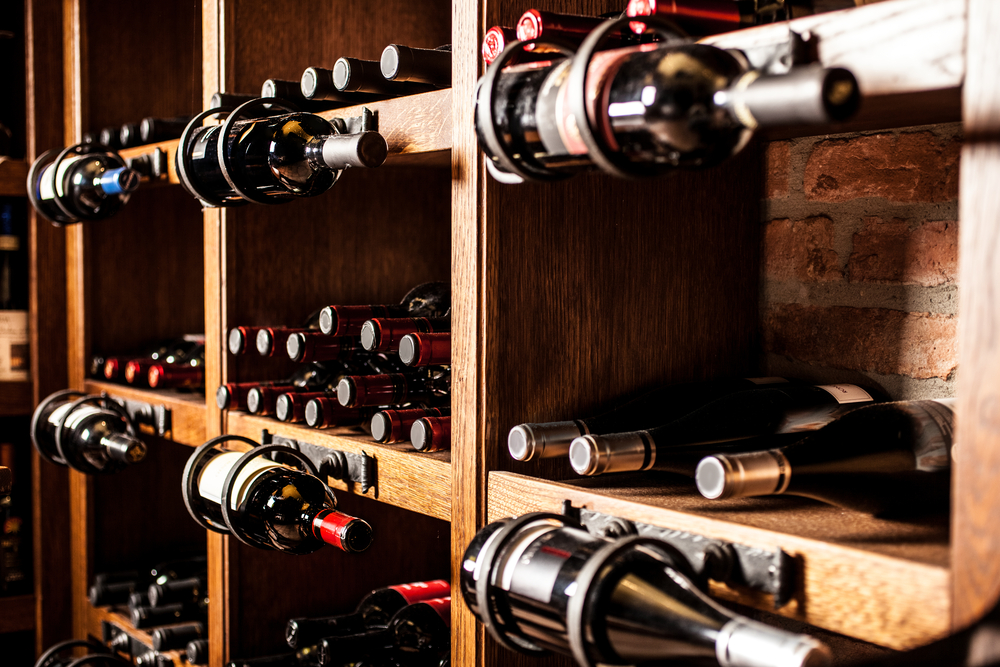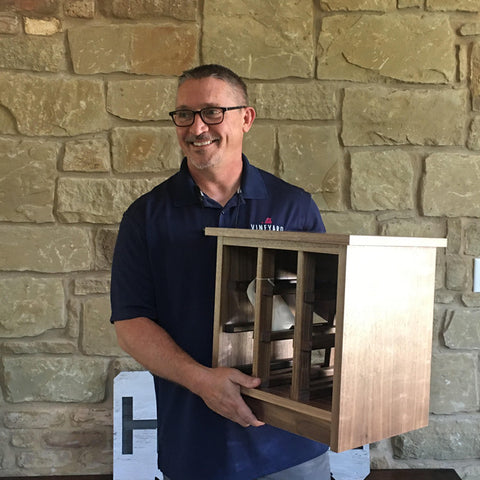Humidity
This is perhaps the most critical aspect of your wine cellar, as it is advisable to keep humidity levels around the sweet spot of about 65 percent. It need not be exact, but it should be within the range of 50 and 70 percent for the best results. If the humidity levels fall too low, the semi-porous corks will dry out. This can let bacteria and other contaminants into your wine, and it can cause the cork to crack and fall apart when you try to remove it. If the humidity gets too high, it can encourage mold to grow on your wine bottles, potentially ruining them.The ideal wine cellar will have humidity control to keep it fairly constant. Humidity levels are dependent on the environment—the area you live in will affect this greatly. For example, the humidity levels you'd experience in Arizona are much different than what you would in Houston, Texas. The wine cellar construction should be completely vapor-locked, meaning you must eliminate all potential for air to enter the cellar from surrounding rooms.
Temperature
The best wine cellars maintain constant temperatures. You should aim for somewhere around 55 degrees Fahrenheit, which is warm enough to let your wines age properly, but not too hot that they age prematurely. More important than the exact temperature, however, is that you maintain a constant temperature, as this lets your wine age consistently to result in a smooth flavor. Avoid putting your wine collection near any external sources of heat, like an appliance or furnace.Light Levels
Wine does not benefit from being exposed to light. This means that the best location for a wine cellar is underground or in rooms that are protected from natural sunlight.Capacity
Take an inventory of your wine collection and build a cellar that will accommodate what you have, and that will still have space so you can add a few more bottles. Unless you are planning to store a rare vintage for sale down the road, you will probably consume older bottles as you replace them with new ones, so while your collection will be in constant flux, the number of stored bottles will remain about the same.Organization
A proper wine cellar stores bottles resting on their sides, which allows the corks to soak up a bit of wine to help keep them moist on the inside. Otherwise, you will end up with small pieces of cork floating in your wine or, worse, risk it getting contaminated. It is advisable to keep everyday wines in one area, where you can access them easily, and special vintages in another. Maintaining an inventory will help keep your wine cellar in stock.What Makes a Good Wine Cellar?
To conclude, it's important to make sure you take an active part in the design of your wine cellar to make sure it will safely store your collection and meet all your storage needs, but remember, the best one will have the features highlighted here and bring them together seamlessly.To find the right wine cooler for you, visit our website today!


